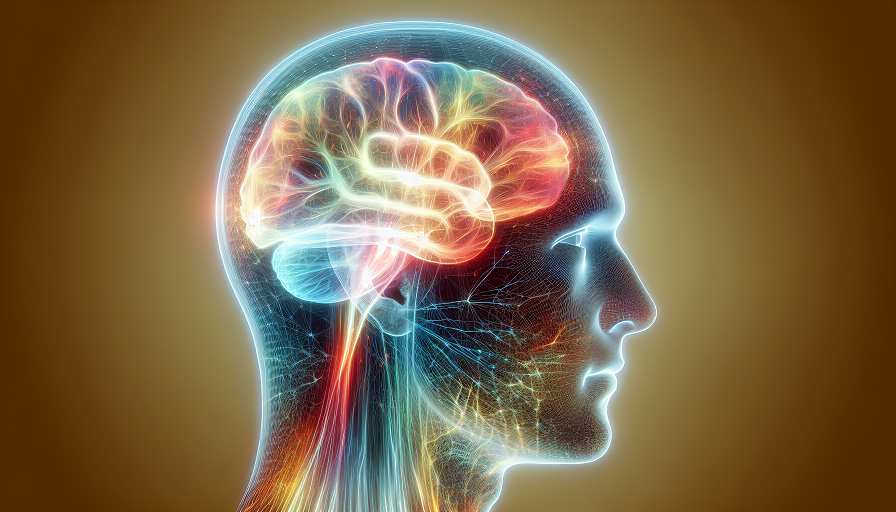
Our brains are fascinating. They manage our thoughts, movements, emotions, and much more. At times, we wonder if there’s a way to make this all-powerful organ function faster, allowing us to think more swiftly and efficiently. Guess what? It’s possible! Thanks to a phenomenon called neuroplasticity, our brains can change and adapt throughout our lives. Here we look into how you can train your brain to think faster with practical tips and insights.
Contents
Understanding Neuroplasticity
The term “neuroplasticity” might sound like a complicated science word, but its meaning is quite incredible. Neuroplasticity refers to the brain’s ability to reorganize itself by forming new neural connections. This means that our brains are not static; they are capable of changing, improving, and adapting, much like how our bodies can get stronger with exercise.
When you learn something new or practice a skill repeatedly, you’re training your brain to develop these connections. This improved capability can lead to quicker thinking and more efficient problem-solving. By understanding and utilizing neuroplasticity, you have the power to transform your cognitive abilities.
Engage in Mental Challenges
One simple way to harness neuroplasticity is through regular mental challenges. Engage in activities that stimulate your brain and keep it on its toes. Try puzzles like crosswords, Sudoku, or brain teasers that require logic and strategy. Even playing chess or learning a new language can push your cognitive boundaries.
These activities encourage your brain to work harder, forge new connections, and process information faster. The more you challenge your brain, the more efficient it becomes at tackling new tasks. Plus, keeping your mind active can be fun and fulfilling, making this a win-win approach to boosting brain speed.
Get Physical
You might be surprised to know that physical exercise plays a crucial role in enhancing brain function. When you exercise, your heart pumps more blood to your brain, delivering oxygen and nutrients that fuel its activity. This increase in blood flow supports the growth of new neurons and strengthens existing connections—both of which are vital for quicker thinking.
Include aerobic exercises like running, cycling, or swimming in your routine. These activities boost the production of “feel-good” chemicals in the brain, such as endorphins, which not only improve mood but also sharpen cognitive abilities. So, lace up those sneakers and get moving for a brain boost!
Embrace Lifelong Learning
Lifelong learning is a powerful way to maintain cognitive flexibility and enhance mental agility. When you commit to continuously learning new things, you stimulate your brain’s neuroplastic abilities, promoting faster thinking over time. This could involve taking a new class, picking up a hobby like painting or playing a musical instrument, or even keeping up with current events through reputable sources.
By staying curious and open to new experiences, you encourage your brain to form fresh neural pathways. Not only will this help you think faster, but it will also keep your mind sharp and engaged, making everyday tasks more manageable.
Practice Mindfulness and Meditation
The practice of mindfulness and meditation can significantly impact your brain’s efficiency. Mindfulness encourages you to focus on the present moment, which can lead to better concentration and faster information processing. Meditation, in particular, has been shown to increase the density of gray matter, which is associated with improved memory and decision-making.
Start small with just a few minutes of meditation each day. Gradually increase your practice as you become more comfortable. With consistency, you’ll likely notice not only faster thinking but also reduced stress levels and improved overall mental well-being.
Brain Supplements and Nootropics
In the quest for faster brain function, you may have come across brain supplements or nootropics. These are substances that are believed to enhance cognitive performance, memory, and brain speed. Some people use them to complement other brain-training activities, seeking an extra edge in mental sharpness.
Popular nootropics include caffeine, found in coffee and tea, and ginkgo biloba, an herbal extract. While some studies suggest potential benefits, it’s important to approach supplements with caution. They may interact with medications or have side effects, so consulting with a healthcare provider before starting any new supplement is always a wise choice.
Brain supplements can offer you an added boost in cognitive function, but it’s essential to use them responsibly. Rather than relying solely on these products, combine their use with a balanced lifestyle that includes physical activity, mental exercises, and a healthy diet for the best results.
Nutrition’s Role in Brain Health
What you eat can significantly impact your brain’s efficiency in processing information. Nutrient-rich foods help maintain and improve brain function, promoting faster thinking. Focus on a diet rich in omega-3 fatty acids, antioxidants, and vitamins found in foods like fish, nuts, berries, and leafy greens.
These nutrients support the production of neurotransmitters, which help in communication between neurons and facilitate the creation of new neural pathways. By eating a well-balanced diet, you’re providing your brain with the necessary fuel to keep thinking quickly and efficiently.
Prioritize Sleep for Cognitive Speed
A well-rested brain is more efficient and processes information faster. During sleep, your brain consolidates memories and repairs itself, which is crucial for maintaining optimal cognitive function. Lack of sleep can lead to slower thinking, impaired judgment, and difficulty concentrating.
Aim for 7-9 hours of quality sleep each night. Create a calming bedtime routine and a comfortable sleeping environment to encourage restful sleep. Consistently getting enough rest will enhance your brain’s ability to think quicker and improve overall mental performance.

